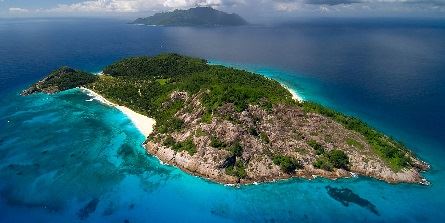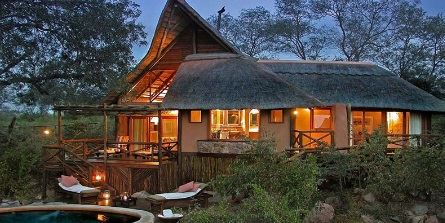Ecotourism and sustainability go hand-in-hand, preserving natural habitat, aiding in conservation and empowering local communities.
Wilderness Safaris integrates the four Cs – commerce, conservation, community and culture – into one coherent sustainability framework, demonstrating that each aspect of business is as important as the other.
“We have to do well in order to effect change but we have also demonstrated that by making a difference, we can also create value for our shareholders,” says the company’s Commercial Director, Derek de la Harpe. “After nearly 35 years in business it is sometimes hard to remember why you started out and what you originally hoped to achieve, however, for us, our reason for being is even more firmly entrenched and defined than ever before. Simply put, our vision remains to conserve and restore Africa’s wilderness and wildlife by creating life-changing journeys and inspiring positive action.”
DumaTau Camp in the Linyati in northern Botswana and renowned for its luxury ecotourism offering in addition to its sustainable ecotourism efforts, is a prime example of the four Cs being integrated into everyday practice.

It employs over 52 staff, 95% of whom are locals from around the Delta and Chobe areas. Training is crucial for Wilderness Safaris employees, with ongoing courses offered in hospitality, guiding, and management through the Wilderness Training Facility, which is accredited by the Botswana Qualifications Authority. Online training is also available through a system called Lobster Inc. and trainers visit the camp to conduct practical tests.
DumaTau is completely solar powered. Waste water (grey water and sewerage) is treated by a sewage treatment plant, ensuring it is properly processed before entering the natural environment. Sampling tests are done on a regular basis to ensure that waste water is being disposed of within acceptable limits.
As part of its Reusable Water Bottled Policy, the lodge fills reusable bottles with water filtered by a reverse osmosis system installed at the camp.
“As a leading sustainable and authentic ecotourism company, it is our duty to ensure that any negative impacts resulting from our operations are minimised, and any positive impacts are maximised. Thus, we drive a culture within our organisation that values and promotes sustainability, not only within our business but in all other aspects of day-to-day life,” says Kim Nixon, Wilderness Safaris Botswana Managing Director.
Wilderness Safaris offers 14 reasons why the eco-conscious traveller should patronise its camps and lodges.
Among them are the company’s protection of 2.5m ha of territory across eight biomes, harbouring 36 of the International Union for Conservation of Nature (IUCN) Red List species, as well as its use of environmentally sensitive architecture.

Under the Noah’s Ark Project, North Island in the Seychelles has been transformed from an ecologically bankrupt tropical island into a haven for endemic species. Endangered bird and reptile life have been saved and indigenous flora restored. A highlight has been the regeneration of the Seychelles white-eye. From its founder population of 25 birds, the island now has over 100, and the once critically endangered species is now listed as ‘just’ endangered by the IUCN.
In Rwanda, Wilderness Safaris has focused on reforesting Rwanda’s endemic-rich Albertine Rift. The company believes its brand of responsible ecotourism will make a difference to both rural Rwandan people and endangered species alike, with its new Bisate Lodge, which opened last year.
Idube Game Lodge, in the Sabi Sand Game Reserve, comprises 10 chalets, set amongst an indigenous garden of tall trees and green lawns, and is watered solely with recycled water.

Sally Kernick, Marketing Director at Idube Game Reserve and Lukimbi Safari Lodge in the Kruger National Park, says: “Idube was one of the first lodges in the Sabi Sand to introduce the purification of grey water by natural means.” The lodge also recycles glass bottles and plastic.
Lukimbi, she says, is audited quarterly by SANParks on the condition of roads, water usage and condition of the wetlands. Recycled water is used for the gardens and only plants indigenous to the area are used.

Wendy Rutherfoord, Director of Gondwana Game Reserve, says eco measures employed by lodges on the reserve include recycling, growing vegetables to supply the kitchen and providing communal transport to lessen the vehicle footprint. Low-flow water devices are used and filtered drinking water is supplied in reusable glass bottles.

“The overall ethos and commercial aspect of the game reserve is completely focused around conservation of South Africa’s fauna and flora. Eco practice is central to the business and tourism attraction of the property,” says Rutherfoord.
Evelyn Patrick, Operations Manager for Snappy Coach Hire in Gauteng, says paper bags are in use on buses to collect clients’ refuse, as opposed to plastic ones. From there, all waste is separated for recycling. In addition, Snappy collects rain water to wash buses and makes use of a bucket system, rather than a hosepipe.

“Our cleaning products are environmentally low impact. We make substantial use of available ambient lighting, rather than using electricity to light our offices,” she says.























